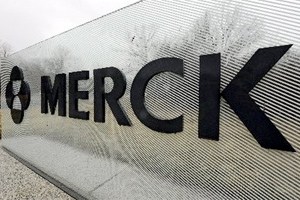
Merck & Co has bagged US approval for its checkpoint inhibitor Keytruda in lung cancer, adding to its earlier clearance.
Specifically, the FDA has approved Keytruda (pembrolizumab) to treat patients with metastatic NSCLC whose tumors express PD-L1 – as determined by an FDA-approved test – and who have disease progression on or after platinum-containing chemotherapy.
Keytruda’s approval comes alongside a green light for Dako’s PD-L1 IHC 22C3 pharmDx diagnostic, which was developed in tandem with the new drug.
The FDA’s director of the Office of Hematology and Oncology Products – Richard Pazdur – hailed Keytruda’s approval as evidence of a growing understanding of the molecular processes underpinning cancer.
“Today’s approval of Keytruda gives physicians the ability to target specific patients who may be most likely to benefit from this drug,” he said.
The new indication once again puts Merck in competition with checkpoint inhibitor Opdivo (nivolumab) from Bristol-Myers Squibb, with the two drugs already rivals in the melanoma market.
They have slightly different labelling in lung cancer. Keytruda can be used in both squamous and non-squamous cell NSCLC, while so far Opdivo was approved in March for use in squamous NSCLC only, although its label does not require use of a companion diagnostic.
It is estimated that between 20% and 25% of NSCLC patients have PD-L1 expression high enough (50% of cells testing positive) to warrant Keytruda treatment. There are around 221,000 new cases of the disease every year in the US.
Analysts at JP Morgan said Keytruda was starting off with a restricted label but this was expected and use of the drug is expected to become broader as new data from ongoing trials comes in.
The current approval is based on data from 61 patients out of a larger, 550-patient NSCLC trial. In this subpopulation Keytruda achieved a 41% response rate, with the benefit lasting for between two and nine months, according to the FDA.
“The durability of response with immune checkpoint inhibitors is exciting and has given new options for our patients,” commented Dr. Naiyer Rizvi of Columbia University Medical Center, who was a principal investigator for the Keytruda lung cancer clinical programme.
“And, with the approval of the first PD-L1 companion diagnostic, we can identify patients who are more likely to experience benefit from Keytruda,” he noted.Some analysts predicting that NSCLC market could top $20bn given the large number of potential patients and lack of effective treatments, well ahead of melanoma at around $3bn.




